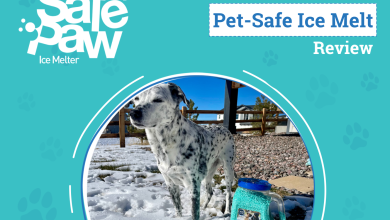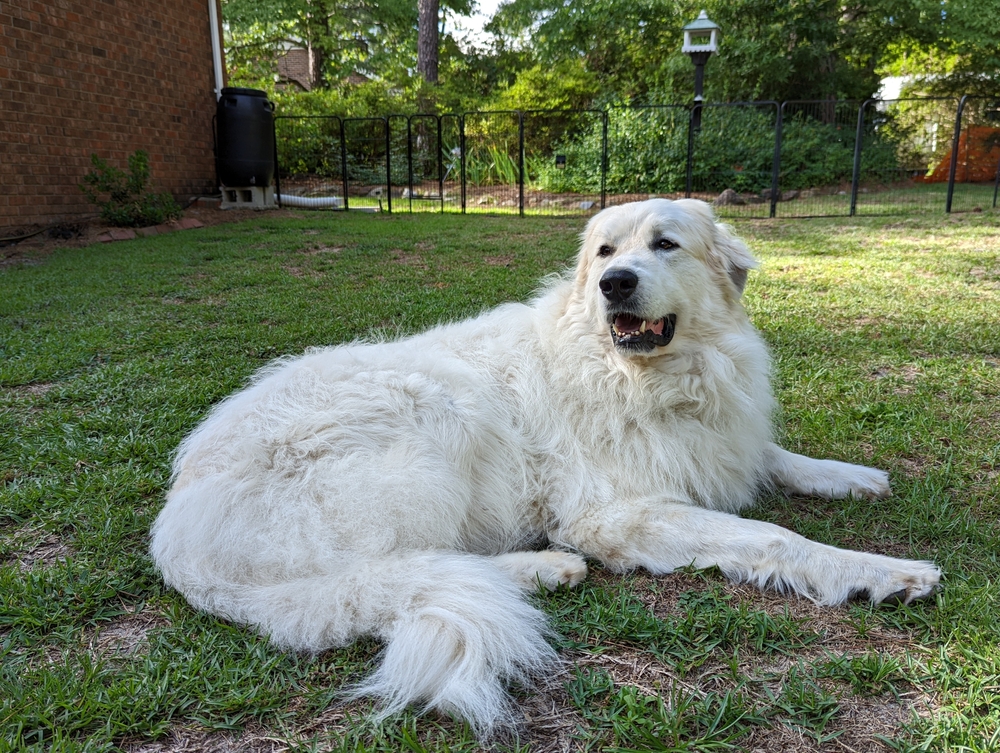
The Great Pyrenees is a popular breed, as these canines are large, loyal, protective, and gorgeous. However, due to their size and protective nature, some believe that the breed is aggressive. The Great Pyrenees is not aggressive, but they do have certain tendencies that can be misconstrued as aggression at times. And, of course, any dog that isn’t properly socialized may very well end up having behavioral problems, including aggression. However, overall, this breed is a rather gentle one.
If you’re considering adopting a Great Pyrenees but are concerned they may be aggressive, here’s what to know about this breed’s temperament and the instincts and tendencies that are sometimes misconstrued.


The Temperament of the Great Pyrenees
This dog breed is known for being gentle. They’re also affectionate with their loved ones, independent, and confident. And, as we’ve mentioned, they have a protective streak, which can be chalked up to their original purpose, which was guarding sheep. The Great Pyrenees may be a companion now and not a guardian of sheep, but their protectiveness and desire to guard extends to their human family. This breed is also incredibly loyal and occasionally strong-willed.
If these dogs are properly socialized and trained from an early age, they make fantastic pets for all kinds of people!
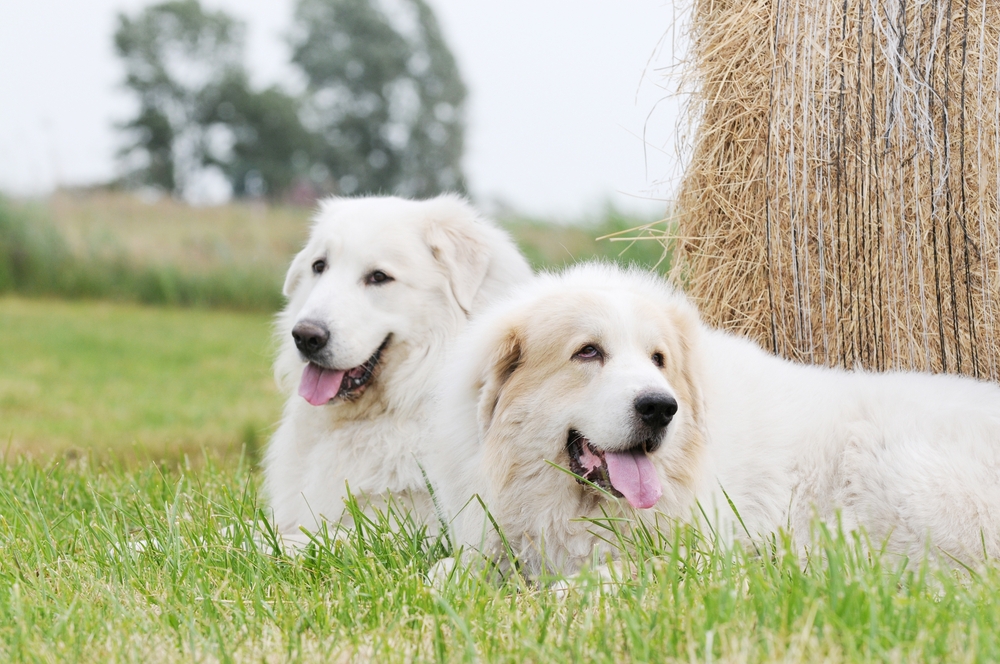



Why Do People Think Great Pyrenees Are Aggressive?
So, if Great Pyrenees are gentle giants, why do some worry that the breed is aggressive? There are four behaviors this breed might exhibit that could be misconstrued as aggression. In most cases, it isn’t; however, it’s important to remember that any dog can be aggressive, and aggression in canines is a multi-faceted behavior resulting from many things, such as socialization, genetics, and environment.
1. Fear
Any dog can be afraid of something, even the large breeds, and behavior that is based in fear can be misconstrued as aggression. If a dog is confronted with something they find intimidating or terrifying, they could very well respond in a defensive manner, which can look like aggression. So, it’s vital that a dog owner be able to recognize the difference between fear-based behavior and actual aggression.
2. Protective Nature
As we’ve said, the Great Pyrenees is a highly protective pup, and their protective nature can sometimes be taken as aggression. This is because when these canines go into protective mode, they may position themselves between you and the perceived threat and begin to bark loudly. However, they won’t normally do much more than bark, as they’d rather scare a threat off than engage in a fight. It can be scary to see a large dog barking threateningly, but this is a protective instinct and not aggression.
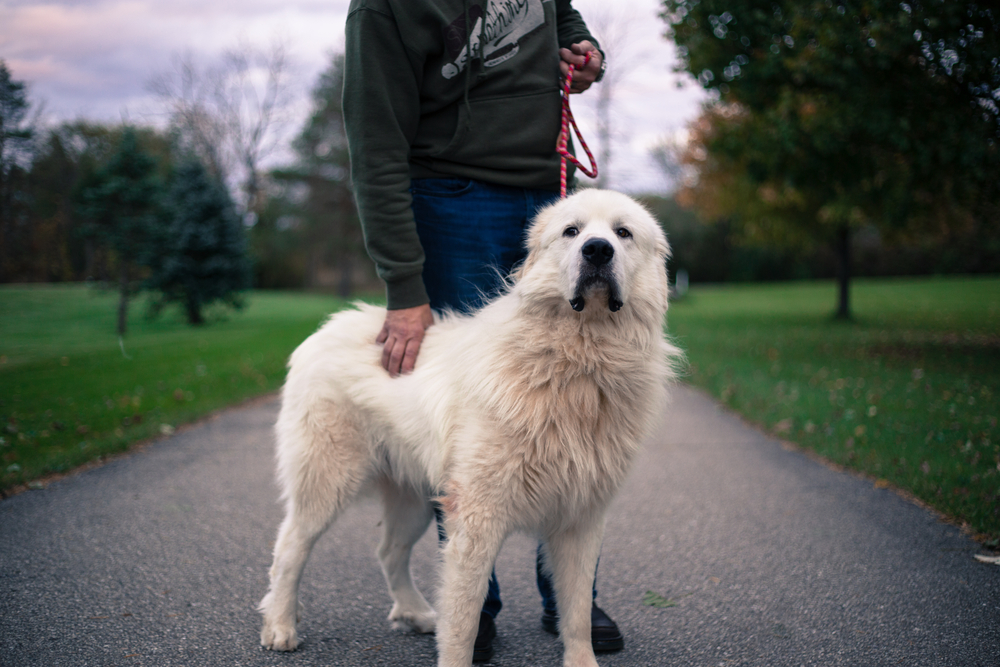

3. Socialization
Because the Great Pyrenees is so protective, early socialization is vital to their upbringing. Without this, they can become overly wary of strangers, new animals, and more, which can lead to aggressive behavior. A properly socialized Great Pyrenees, though, is able to differentiate between a real threat and one that is actually harmless. They’re also more comfortable when introduced to new people, animals, and places, which reduces the chances of aggression.
4. Territorial Behavior
Another tendency many Great Pyrenees have is to be territorial, especially over their homes. They sometimes don’t take well to new animals or strangers entering what they view as their territory, which can lead them to be wary and standoffish. This is normal dog behavior, though, and shouldn’t be misconstrued as aggression.


How Can I Keep My Great Pyrenees From Seeming Aggressive?
If you’re considering adopting a Great Pyrenees and are concerned they may come across as aggressive or actually exhibit aggression down the road, there are several things you can do to prevent this from happening.
Socialize Your Dog
We’ve mentioned this a couple of times now, but proper socialization is key to curbing tendencies that seem aggressive and actual aggression in canines. Begin socializing your Great Pyrenees the moment you get them by introducing them to new people, dogs, animals, places, and things. Doing this ensures they become well-adjusted adult dogs who aren’t prone to being afraid of everything.
Train Your Dog
Training is another aspect of dog ownership that should never be skipped over. Train your Great Pyrenees from a young age using positive reinforcement and consistency. With proper and consistent training, you should have an obedient and well-behaved pup by the time they’re one year old.
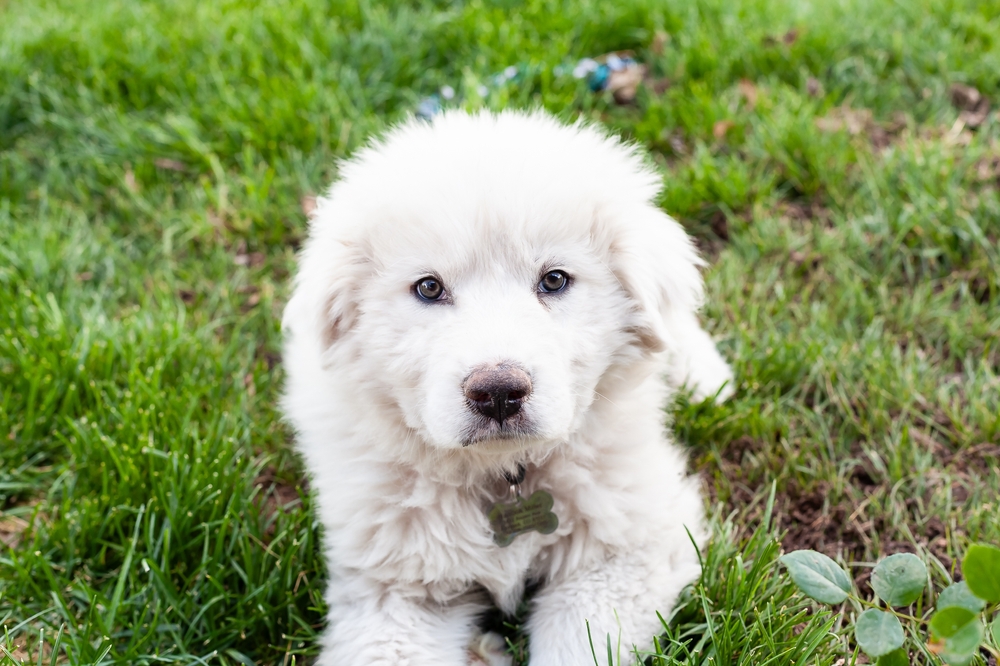

Fence in Your Yard
You can help ward off territorial behavior and this breed’s natural protectiveness by having a fenced-in yard for them. This also has the benefit of preventing them from roaming and getting lost.
Provide Plenty of Stimulation
A bored dog will eventually develop behavioral issues, but you can avoid that by ensuring your Great Pyrenees receives enough physical and mental stimulation each day. These canines are fairly active and need daily exercise in the form of walks and playtime. For mental stimulation, try puzzle games, training your dog to do tricks, or teaching them doggie sports.


Final Thoughts
The Great Pyrenees is truly a gentle giant and not prone to aggression. However, due to their protectiveness, loyalty, and sometimes territorial nature, they may engage in behavior that people misconstrue as aggression. You can help your pup engage in fewer of these behaviors via proper socialization and training. Providing them with a fenced-in backyard that can be a safe space and plenty of physical and mental stimulation will also help your dog immensely.
Featured Image Credit: Sierra Tango, Shutterstock



